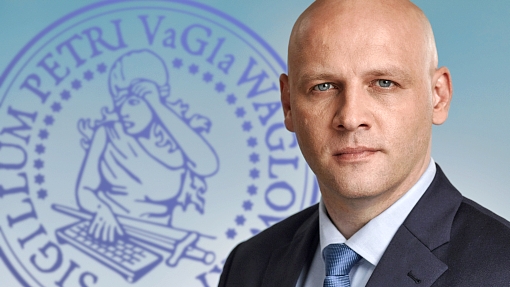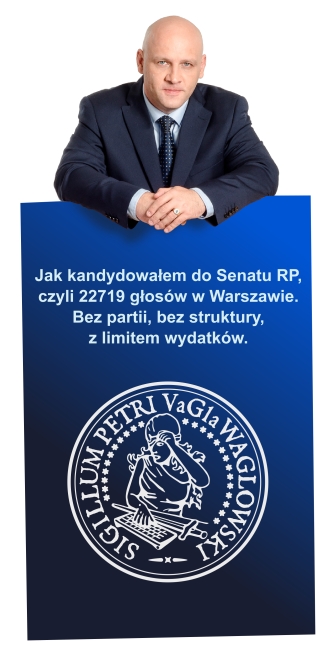RIAA pozywa jakby kosiła zboże...
Żyjemy w czasach, w których każdy może być pozwany o kradzież wirtualnej własności (to dobry zamiennik do terminu "własność intelektualna", nie?). The Recording Industry Association of America to odpowiednik młota bożego na czarownice w społeczeństwie informacyjnym. Tysiące pozwanych...
Jak donosi IDG za komunikatami RIAA: "Liczba osób pozwanych przez RIAA pod zarzutem nieautoryzowanego udostępniania w Internecie materiałów chronionych prawem autorskim wzrosła do 14,8 tys".
Jak to działa? Pozew, wyliczenie szkód. Kilkadziesiąt, albo kilkaset tysięcy dolarów. "Ale ja nic złego nie zrobiłem!". Nie obchodzi nas to. Koszty sądowe Cię zabiją. "Jako Twój adwokat radzę ci dogadać się z nimi". Pokój negocjacyjny. Rozbiegany wzrok. "A więc chcecie się dogadać?". Tak, ale nie mają tyle pieniędzy. "A, ile macie? Bierzemy ile macie". Next!
No i jeszcze wyrok w sprawie Grokstera. Jak pisze Dziennik Internatutów: "wyrok w sprawie Grokstera poważnie wystraszył właścicieli firm rozwijających sieci P2P". Być może i wystraszył, ale pojawiają się też kolejne osoby, które postanowiły sprzeciwić się korporacjom muzycznym. Tym razem taka osobą jest Tanya Anderson, która złożyła kontrpozew przeciwko RIAA. Domaga się procesu.
W kontrpozwie cała litania złamanych zdaniem Anderson przepisów (w tym naruszenie prawa zwalczającego zorganizowaną przestępczość: ustawa RICO - Racketeer Influenced and Corrupt Organisation). Oszustwa, naruszenie prywatności, nadużywanie drogi sądowej, niedbałości w podczas ustanawiania pełnomocników, nieuczciwe praktyki biznesowe... Cały kontrpozew dostępny jest w formacie PDF... Zapowiada się ciekawie. Czyżby kolejny kamień w łanie koszonego zboża?
Tanya Andersen to czterdziestodwuletnia samotna matka wychowująca ośmiolletnią córeczkę. Andersen jest również niezdolna do pracy (jako inwalidka). Jak twierdzi: nigdy nie pobierała ani nie dystrybuowała przez internet żadnej muzyki.
- Login to post comments
Piotr VaGla Waglowski

Piotr VaGla Waglowski - prawnik, publicysta i webmaster, autor serwisu VaGla.pl Prawo i Internet. Ukończył Aplikację Legislacyjną prowadzoną przez Rządowe Centrum Legislacji. Radca ministra w Departamencie Oceny Ryzyka Regulacyjnego a następnie w Departamencie Doskonalenia Regulacji Gospodarczych Ministerstwa Rozwoju. Felietonista miesięcznika "IT w Administracji" (wcześniej również felietonista miesięcznika "Gazeta Bankowa" i tygodnika "Wprost"). Uczestniczył w pracach Obywatelskiego Forum Legislacji, działającego przy Fundacji im. Stefana Batorego w ramach programu Odpowiedzialne Państwo. W 1995 założył pierwszą w internecie listę dyskusyjną na temat prawa w języku polskim, Członek Założyciel Internet Society Poland, pełnił funkcję Członka Zarządu ISOC Polska i Członka Rady Polskiej Izby Informatyki i Telekomunikacji. Był również członkiem Rady ds Cyfryzacji przy Ministrze Cyfryzacji i członkiem Rady Informatyzacji przy MSWiA, członkiem Zespołu ds. otwartych danych i zasobów przy Komitecie Rady Ministrów do spraw Cyfryzacji oraz Doradcą społecznym Prezesa Urzędu Komunikacji Elektronicznej ds. funkcjonowania rynku mediów w szczególności w zakresie neutralności sieci. W latach 2009-2014 Zastępca Przewodniczącego Rady Fundacji Nowoczesna Polska, w tym czasie był również Członkiem Rady Programowej Fundacji Panoptykon. Więcej >>








10.2005 ---> 03.2008
Tanya Andersen (w internecie funkcjonują nazwiska Andersen, Anderson, Aderson - wg mnie to pierwsze jest poprawne) oskarżyła RIAA o wymienione powyżej przestępstwa (jej zdaniem RIAA naruszyła przepisy antymafijnej ustawy RICO (Racketeering Influenced and Corrupt Organizations).
O spodziewanych skutkach: RIAA ujawni techniki śledcze?
Tanya A.
Andersen v. Atl. Recording Corp., 2008 U.S. Dist. LEXIS 13207 (D. Or. 2008).